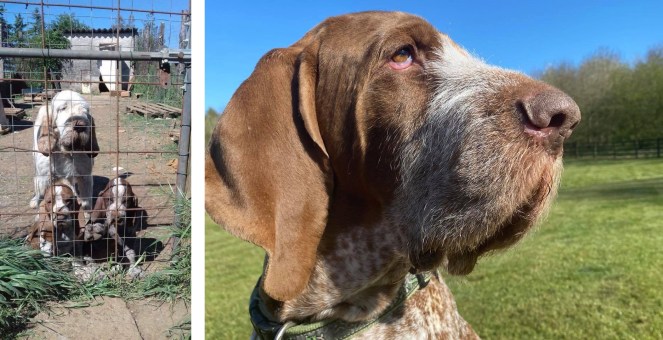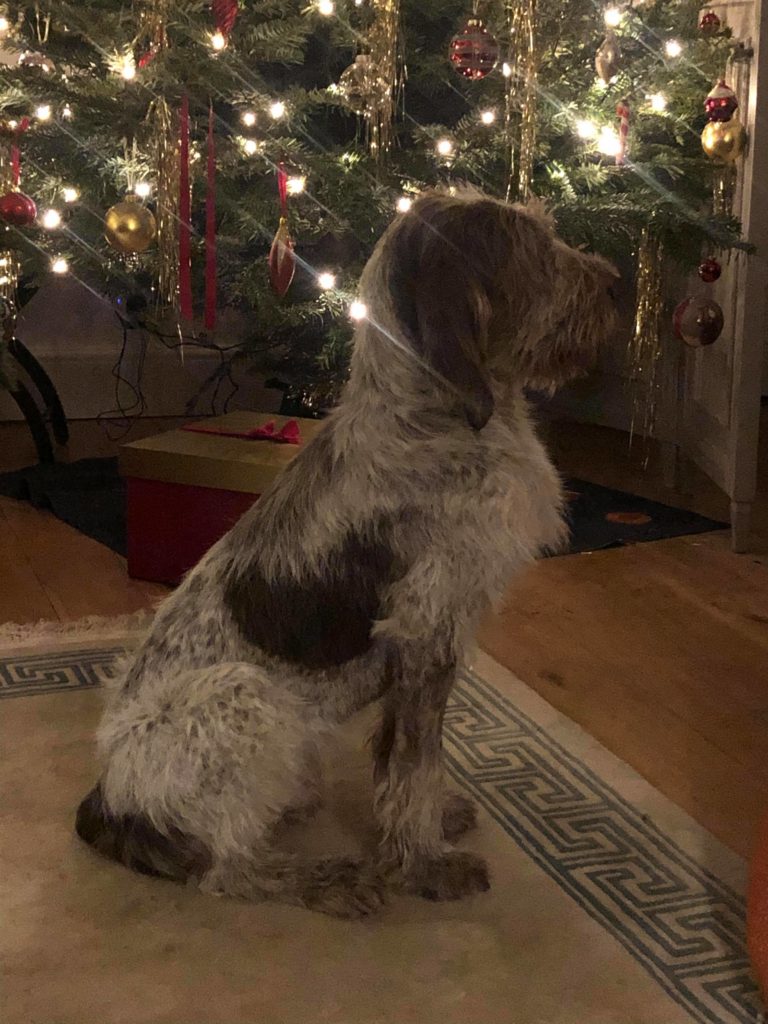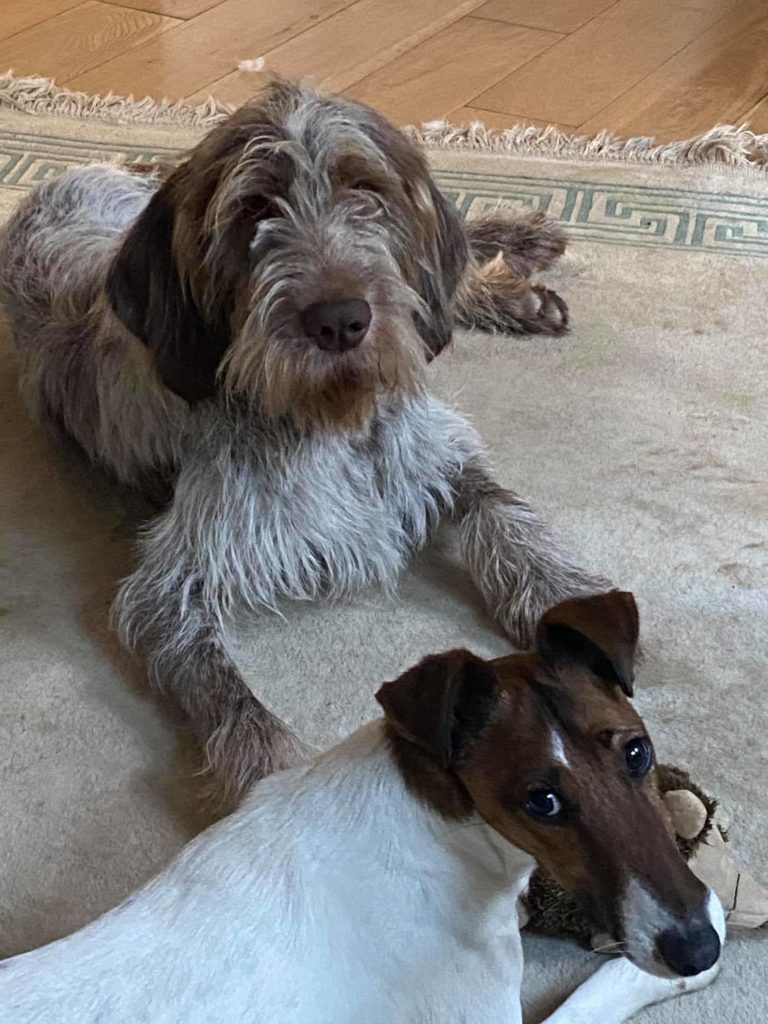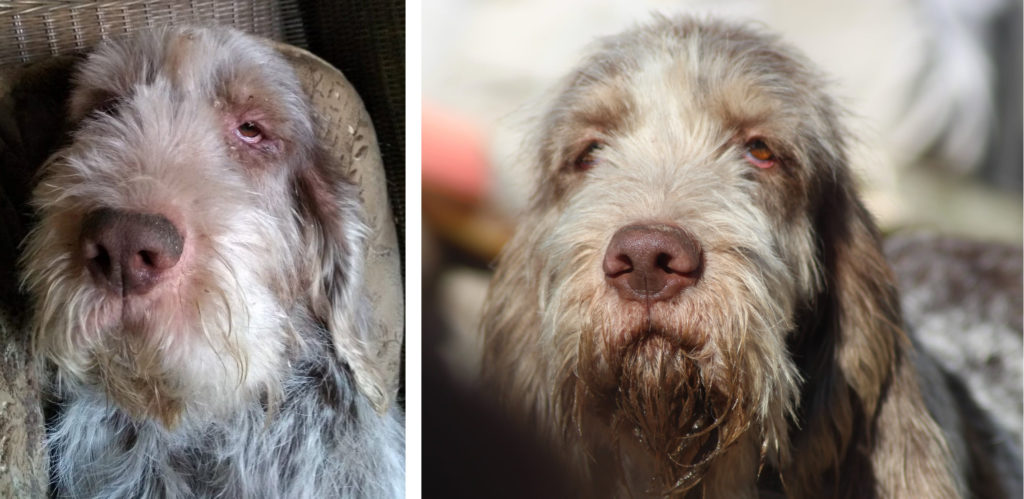Our policy as SOFA is not to bring Spinoni into the UK with Leishmaniasis. But it has occurred in SOFA dogs because they were undetected before arrival.
Treatment in the UK can be expensive and difficult, with few vets that have experience and the drugs are not widely available. So you should check your insurance will cover this condition.
This page is to read about our experiences. For more about the disease read our information on health conditions including Leishmaniasis here.
Case studies
A total of four dogs from SOFA have tested positive for Leish after a negative test in Italy before travel.
One was a dog whose mother had Leish, but was brought in with a clear laboratory test as a puppy.
The other three were from a single source – two litter mates and a half-sibling. These dogs were tested with an approved snap test at the vets, rather than a full laboratory test, because laboratory tests were very difficult to do during the early days of the COVID pandemic in Italy. SOFA immediately contacted the adopters all dogs from this source in Italy and also all Italian contacts that could be affected.
We very much hope that now with laboratory tests before travel, we will not have another case of undetected Leishmaniasis. But it is always a possibility. It’s very useful to read their stories in order to know what to look out for, and we have kept the full updates that these adopters were kind enough to share with us in our files, in case they are useful in the future.
We remain very grateful for their loving care of these beautiful dogs.
Case Study: Baldo
A Spinone mum, Agata, was rescued with two puppies. Agata was Leishmaniasis positive but the puppies were clear. Although SOFA does not bring in Leish positive dogs as a charity, we do help as individuals in some cases, and Agata was offered a home by one of our trustees as soon as she was well enough to travel. Sadly Agata died (not of Leishmaniasis) before she could travel.

Her puppy Baldo tested clear for leishmaniasis and came to live in the UK. However, he became unwell at around six months old, and it was not easy to understand why. As he was lame on his back legs, it was thought to be panosteititis, as he was a very big puppy. However, he proved to be positive for Leishmaniasis even though he did not have the more obvious symptoms. Although he had a difficult year, the treatment was successful, Baldo has now been in remission for some years and continues to thrive.
Case Study: Iggy

Iggy was brought to the UK in the summer of 2020 and though a loving and beautiful boy he was unusually subdued and did not gain weight, for no obvious reason. The vet tested him for Leish and we were all astonished and heartbroken that he came back positive.
His kidneys were not strong enough to start injections so he had to be on a drip for three days (“but we got to take him home every evening so that made it a bit easier and we could give him some evening cuddles”)
He also needs to be on a low-purine and low-protein diet. As of April 2021, he has become very very playful and full of energy and showing no symptoms, however he will likely need to stay on them though to manage the kidneys in particular and is up from 19kilos to just over 26kg.

Case Study: Iris (Litter sister to Iggy)
Iris already had an existing medical issue as one eye was very underdeveloped and not functioning. However, other than this she was fine, apart from being very thin – but this is not unusual in the dogs we help.
However, her health did not improve as fast as hoped, and a few months after arriving in the UK, she became ill. At first it was thought that she had just eaten something that disagreed with her.
Her symptoms were restlessness, diarrhoea, extremely fussy with food and inability to put on weight at all. Then the nosebleeds started, followed by extreme lethargy.
Her condition worsened and she was admitted to hospital, where she was when SOFA called her owners to say that her brother Iggy had tested positive for Leishmaniasis. A test was arranged immediately and proved positive.
With time she improved and came home. Interestingly the two female Spinone she was homed with reacted much better to her once she was treated and in better health. She is now far more playful than on arrival, has put on weigh and generally very much improved.

.
Case Study: Amalfi – (Half-sister to Iggy and Iris)
Amalfi developed symptoms six months after her adoption – diarrhoea, flaking skin on her body and head, like dandruff, swollen lymph nodes, fever and sore eyes. She followed a similar regime to the other dogs and improved quickly.

Very sadly, she developed seizures and had to be put to sleep in September 2021. It is not thought that these seizures were related to Leishmaniasis or her medication – it was impossible to say for certain what caused them. We all miss her.
Case Study: Olimpia.
Olimpia is not a Spinone, but her progress is great to see ( and she stole all our hearts!). She was living in a car park in Italy and was brought to SOFA’s attention. However she was clearly a GWP mix rather than a Spinone, so we asked the GWP group to help, and we assisted with her arrangements.
A kind volunteer began to give her food, but her positive test for Leish was not a surprise given her appearance. The same kind volunteer paid for her medical treatment, her Leish levels were brought down, and a lovely family said they would give her a home in the UK despite her condition, via the GWP Group.
Olimpia has only needed ‘maintenance’ treatment with Allurpurinol. Her levels remain stable and she is a happy and loving girl, full of joy and almost unrecognisable from her first photos.

We very much hope that with improved testing the chances of another dog having this disease undetected will be greatly reduced. With laboratory testing, we think that Baldo would have been the only one of our dogs to have this happen. But we have known it occur in other overseas rescues so it is always a possibility.
For more about the disease read our information on health conditions including Leishmaniasis here.
